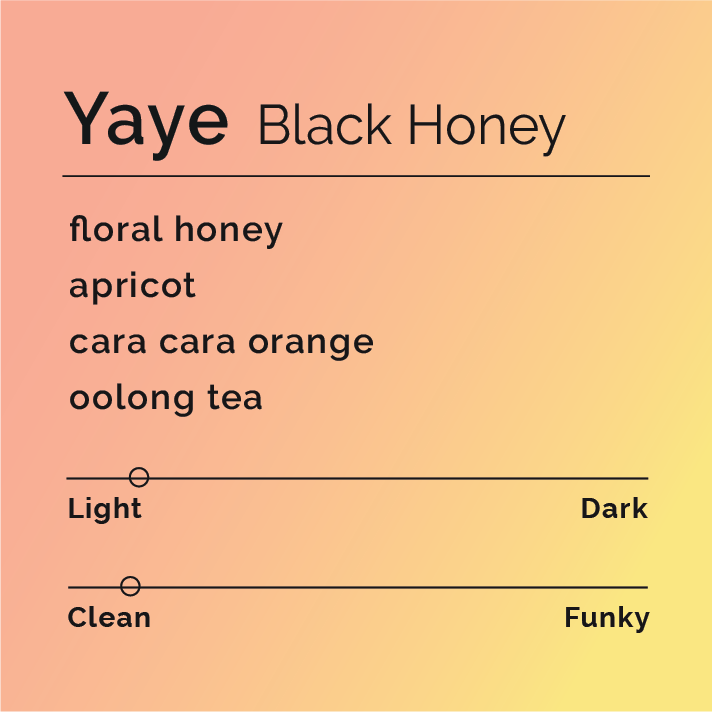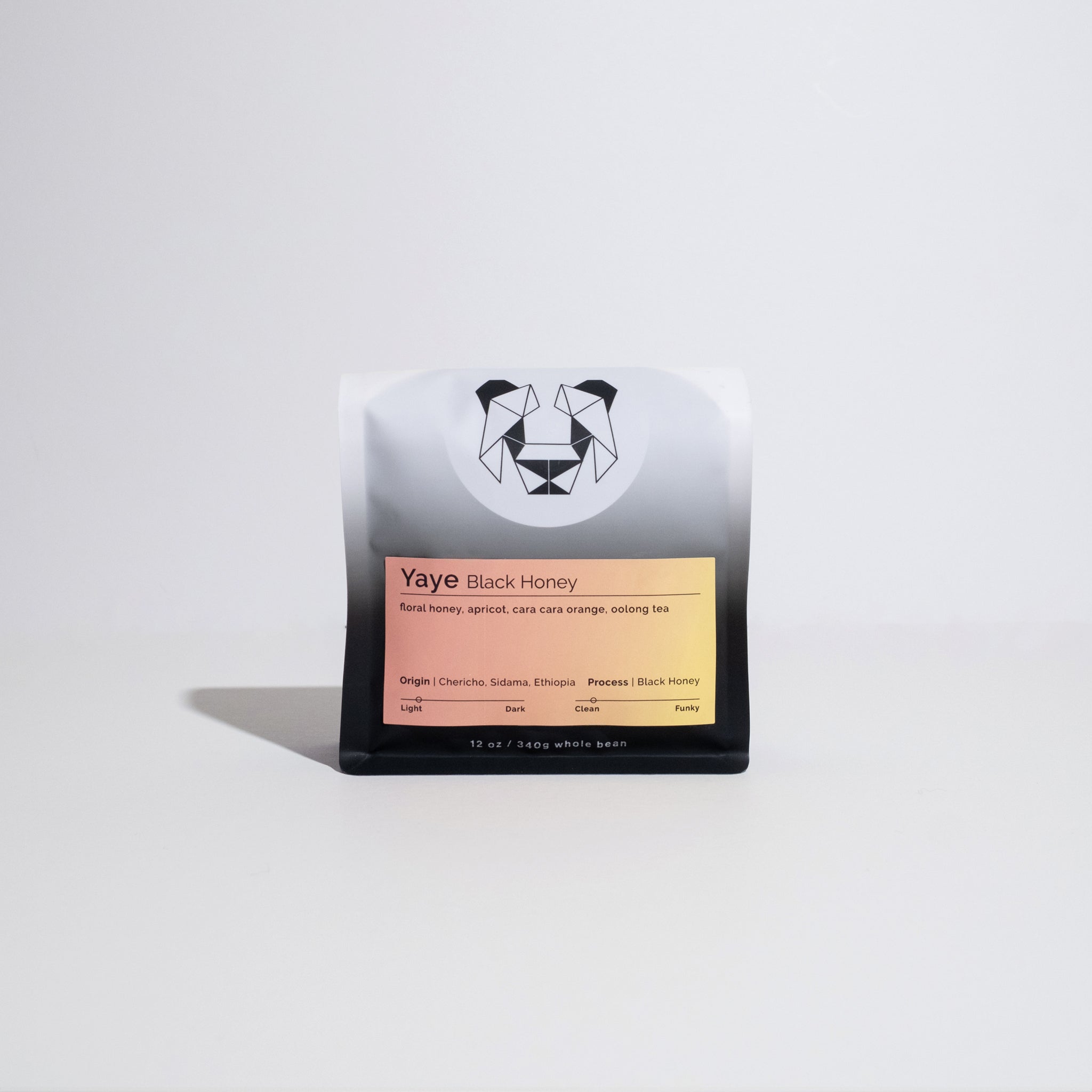Yaye - Black Honey
Description
MEET THE PRODUCER | The Arbegona woreda of Sidama is one of the highest coffee-growing elevations in all of Ethiopia. Here, high altitude and lower temperatures mean that coffee cherries ripen more slowly than is typical, resulting in excellent cup profiles that are sweet, bright, and sought-after. In fact, nearly everything about the coffee we are sharing with you today took place at a slower pace than we would typically expect, from its time spent on the tree to its extended stay at the Yaye washing station, one of the highest washing stations in the world.
The Yaye washing station is operated in partnership with Catalyst Trade and its owner, Mr. Faysel Abdosh. For his part, Mr. Abdosh is not just the owner of this local washing station - he's also an activist and philanthropist, and he's made it his life's work to help raise awareness regarding the obstacles facing coffee growers and communities throughout Ethiopia. His efforts are making a real difference in the lives of rural farmers, workers, and communities in our beloved coffee-growing powerhouse of Ethiopia, and we could not be more honored to share with you a cup of coffee which was touched by those same helpful hands.
Yaye processes coffee from over 300 smallholders throughout Arbegona, and we feel really privileged to offer several of their lots on our menu this season. As you may know, it's been a really challenging year for Ethiopian coffee. Shipping disruptions have caused huge lags in trans-Atlantic transit time, and many coffees finally finding their way to America haven't held up well as a result. That's partially why we're so impressed with this year's lots from Yaye - because they stood up to those longer shipping times and still stand out on the cupping table.
TRUST THE PROCESS | Named for the color of the parchment, black honey-processed coffees have characteristic black splotches from the heavy mucilage load they carry from floating to drying. Post-harvest, coffee cherries undergo two rounds of hand-sorting to ensure the utmost uniformity for pulping. For the black honey process specifically, a disc pulper is calibrated to allow for maximal control and minimal speed of pulping. The goal here is to minimize parchment and seed damage while maximizing the amount of mucilage which remains intact prior to drying. After pulping, the cherries undergo a short fermentation period with all of that precious mucilage still intact. Finally, they are removed to shaded drying beds, where the beans dry slowly under a shade canopy with excellent airflow and lots of supervision. This slow drying time allows for a uniform distribution of moisture content throughout the cellular structure of the beans, and it is this uniformity which is considered critical in producing a superiorly honey-processed coffee.
TAKE A SIP | This coffee is batting straight over the plate of classic Ethiopian flavor profiles - and hits it straight out of the park. Sweetness and florality take center stage in this cup, joining forces with a citrus-like acidity to remind us of orange blossom honey. Subtle stone fruit, like apricot, appears in the foreground while quiet tropical notes - like mango - linger in the back. Overall, this coffee has a tea-like drinking experience about it, reminding us specifically of oolong.
___________________________________________________________________________
Origin | Arbegona, Chericho, Sidama, Ethiopia
Producers | smallholders in Arbegona
Washing Station | Yaye
Process | Black Honey
Variety | Ethiopian landrace selections
Elevation | 1995-2230 masl



